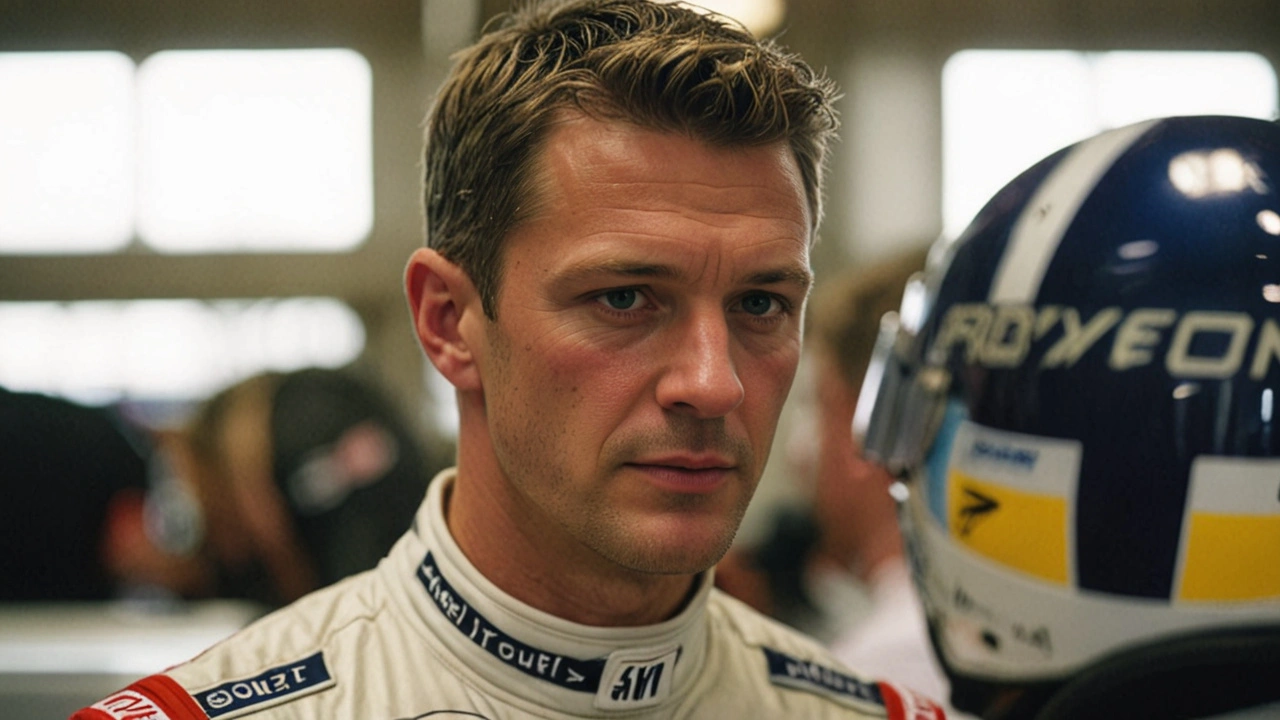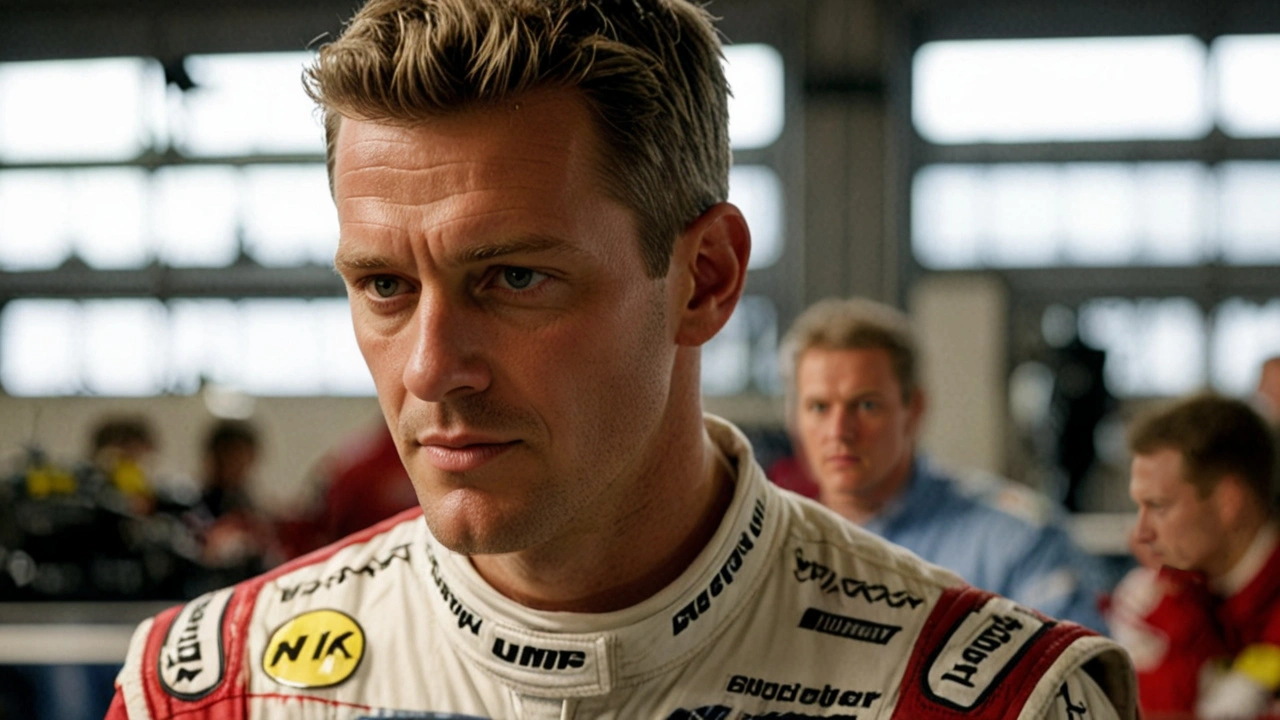Ralf Schumacher's Historic Coming Out
Ralf Schumacher, a name well-known in the world of Formula One, has made a significant step forward for inclusivity and diversity in motorsport. His announcement on Instagram, where he came out as a member of the LGBTQ+ community, not only marks a personal milestone but also signifies broader societal impacts. Schumacher shared a touching photo with his partner Étienne, along with the heartfelt caption: 'the most beautiful thing in life is when you have the right partner by your side with whom you can share everything.'
This candid revelation has resonated deeply within the community, earning widespread support and congratulations from fans and fellow athletes. As one of the most recognizable figures in Formula One to publicly come out, his courage is viewed as a watershed moment in the sport. This action has sparked necessary conversations about diversity and representation at the upper echelons of motorsport.
Significance of Diversity in Formula One
Historically, Formula One has been perceived as a predominantly straight, white male domain. The sport has faced ongoing criticism for its lack of diversity and inclusivity. Schumacher's coming out challenges this narrative and underscores the possibility of a more open and accepting environment within motorsport.
While there have been strides towards greater diversity, Formula One still faces substantial hurdles. Initiatives like Racing Pride, which aims to promote LGBTQ+ inclusion within motorsport, demonstrate a growing commitment to change. However, diverse representation, especially of queer individuals, remains limited.
Comparisons are often drawn to the women-only Formula W series, where more queer drivers have openly competed. The success of these athletes provides a blueprint for what could be achieved across the broader motorsport landscape. Nevertheless, the overarching culture within Formula One necessitates further progress to ensure inclusivity is not just a buzzword but a lived reality for all participants.

The Historical Context of LGBTQ+ Figures in Formula One
Schumacher’s announcement places him among a small yet courageous group of former and current drivers who have revealed their LGBTQ+ identities. One of the earliest known figures was Mike Beuttler, a British driver in the 1970s who was openly gay within his close circles. Regrettably, Beuttler’s story is less remembered in mainstream motorsport history. Lella Lombardi, the only woman to score points in Formula One, has also been noted for her openness about her sexual orientation.
Mário de Araújo Cabral, another former Formula One driver, came out later in his life, offering a narrative that queer identity in motorsport has long existed, albeit often shrouded in secrecy. These pioneering individuals laid the groundwork, and Schumacher’s contemporary and public acknowledgment serves to further build on their legacy.
Cracking Open a Rigid Framework
Schumacher’s declaration comes at a time when Formula One is still grappling with the need for structural changes to promote diversity. Despite concerted efforts, the sport often mirrors the outdated norms of broader societal issues. The reaction to Schumacher’s news showcases widespread support, suggesting a readiness within the community to embrace more inclusive practices.
The journey towards diversity is multifaceted, entailing policy changes, shifts in organizational culture, and leading figures like Schumacher spearheading the movement. While the steps taken are commendable, they highlight the vast terrain that yet remains traversed. The celebration of Schumacher’s news must be paralleled by continued efforts to dismantle barriers for all marginalized groups within motorsport.

Looking Forward: A More Inclusive Future?
As the dust settles on Schumacher’s historic coming out, questions about the future of Formula One’s inclusivity persist. Will this lead to a genuine transformation, or be seen as an isolated event? The answer lies within the continued commitment from individuals, teams, and governing bodies to champion diversity.
Formula One has the spotlight and the platform to significantly influence societal values. By promoting an environment where everyone, irrespective of their sexual orientation, race, or gender, feels representation, the sport can serve as a beacon for other industries. Schumacher’s bravery is a critical step, but it must be amplified by systemic change.
For young fans and aspiring drivers, seeing someone like Schumacher openly live his truth can be incredibly validating. It sends a powerful message: that one's capabilities on the track are what matter most. In a sport characterized by high stakes and intense competition, the courage to be oneself is the most extraordinary victory of all.
Conclusion: A Step Forward, Miles to Go
Ralf Schumacher’s coming out is not just a personal victory; it is a defining moment for Formula One and sports at large. The overwhelming support underscores a collective readiness for change but also highlights the extensive work ahead to ensure that motorsport becomes a true exemplar of inclusivity.
As the world watches, it is imperative for everyone involved in Formula One to continue advocating for diversity. Initiatives, policies, and daily actions will determine whether Schumacher’s brave step becomes a single milestone or the start of a transformative journey. In embracing this challenge, Formula One can indeed pave the way for a more inclusive and equitable future.
